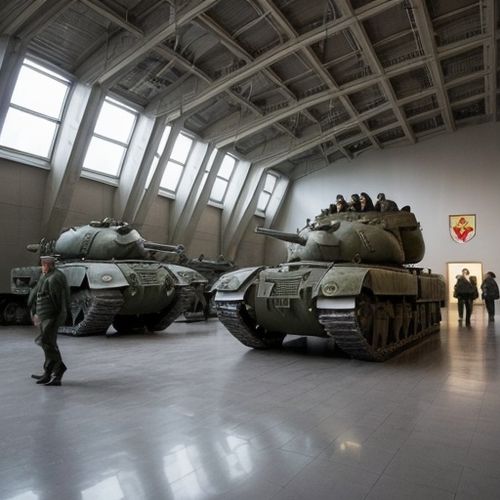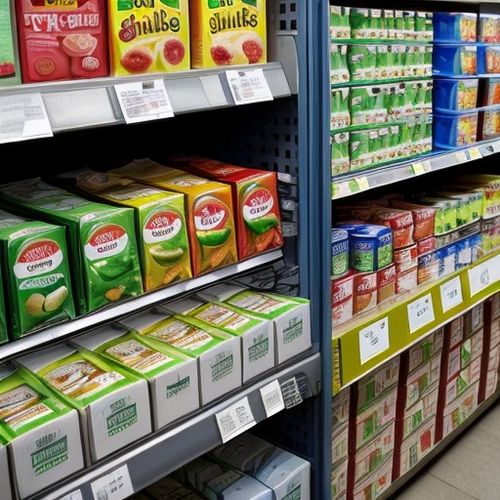For bargain hunters across Europe, timing can be everything when it comes to scoring the best supermarket deals. While many shoppers assume weekends offer the richest pickings, a growing number of savvy consumers swear by Wednesday evenings as the golden hour for discounted groceries. This unexpected timing stems from intricate retail patterns that few customers fully understand.
The midweek discount phenomenon isn’t just hearsay – it’s rooted in supermarket logistics. Most European chains receive fresh produce deliveries early in the week, meaning by Wednesday, managers need to clear shelf space for upcoming weekend stock. This creates perfect conditions for dramatic price reductions on perishable items approaching their sell-by dates. Unlike the rushed weekend crowds, Wednesday evening shoppers often find themselves virtually alone in aisles filled with yellow discount stickers.
Seasoned discount hunters report particular success with premium products midweek. High-end cheeses, organic meats, and gourmet prepared meals that would normally strain budgets frequently get slashed by 50% or more on Wednesday nights. The reasoning is simple – these higher-margin items have tighter freshness windows, and supermarkets would rather take a smaller profit than write off entire inventory.
Geography plays a fascinating role in the Wednesday discount ritual. In Mediterranean countries like Spain and Italy, where fresh food culture dominates, markdowns tend to focus on fish counters and bakery sections after Wednesday’s lunch rush. Meanwhile, northern European nations see more packaged goods and dairy products discounted. Germany’s famous "Mittwoch Rabatte" (Wednesday discounts) have become such an institution that some shoppers plan entire weekly menus around what they anticipate finding reduced.
Beyond food items, Wednesday evenings often reveal surprising non-grocery bargains. Many supermarkets use this quieter shopping period to clear overstocked household goods, from pet supplies to kitchenware. The timing coincides with midweek inventory checks, when staff identify surplus items needing quick turnover. Unlike the chaotic weekend bargain bins, these midweek discoveries often remain neatly organized and fully stocked.
Psychological factors also contribute to Wednesday’s bargain superiority. Shoppers tend to make more rational purchasing decisions midweek compared to stress-filled weekend trips. Without screaming children or long checkout lines clouding judgment, Wednesday evening bargain hunters can carefully evaluate true needs versus impulse buys. This mindful approach frequently leads to greater overall savings despite the smaller basket size.
Employment patterns create another unexpected advantage for Wednesday shoppers. With most working professionals avoiding grocery runs during the workweek’s hump day, supermarkets often deploy their most experienced staff during these quieter periods. These veteran employees frequently have greater authority to approve additional markdowns or offer personalized deals to pleasant customers – opportunities rarely available during hectic weekend rushes.
The Wednesday discount secret does come with caveats. Urban supermarkets near business districts may see different patterns than suburban locations. Similarly, stores near universities often adjust discount schedules around student shopping habits. True bargain masters recommend scouting local stores for several weeks to identify each location’s unique discount rhythm rather than relying solely on the Wednesday rule.
Technology has begun changing the Wednesday discount game. Some supermarket chains now use dynamic pricing algorithms that adjust discounts in real-time based on inventory and predicted demand. While this might seem to threaten traditional discount schedules, many stores still preserve Wednesday evening as their primary clearance period for perishables, maintaining the tradition while incorporating modern technology for other items.
For those willing to adjust their shopping routines, the Wednesday evening strategy offers more than just financial benefits. The calmer store environment transforms grocery shopping from a chore into something resembling a treasure hunt. As one regular Wednesday shopper in Paris described it, "There’s a particular thrill in finding a €25 cheese platter marked down to €6 right before closing. It feels like outsmarting the system." This emotional reward, combined with tangible savings, explains why the Wednesday evening bargain ritual continues gaining devotees across Europe.

By Sophia Lewis/Apr 11, 2025

By Joshua Howard/Apr 11, 2025

By Grace Cox/Apr 11, 2025

By George Bailey/Apr 11, 2025

By Samuel Cooper/Apr 11, 2025

By Sophia Lewis/Apr 11, 2025

By Megan Clark/Apr 11, 2025

By Lily Simpson/Apr 11, 2025

By Samuel Cooper/Apr 11, 2025

By Noah Bell/Apr 11, 2025

By Ryan Martin/Apr 11, 2025

By John Smith/Apr 11, 2025

By James Moore/Apr 11, 2025

By Lily Simpson/Apr 11, 2025

By Thomas Roberts/Apr 11, 2025

By Jessica Lee/Apr 11, 2025

By William Miller/Apr 11, 2025

By Elizabeth Taylor/Apr 11, 2025

By Christopher Harris/Apr 11, 2025

By Eric Ward/Apr 11, 2025